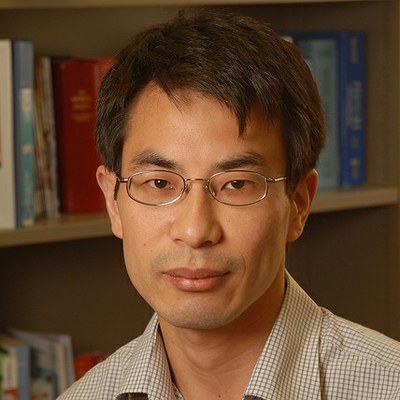June 25, 2021

UNC Eshelman School of Pharmacy Associate Professor Qisheng Zhang, Ph.D., recently was awarded a $2,247,857 grant from the National Cancer Institute to study mutations in lymphomas and leukemias with the goal of identifying new therapeutics.
The four-year grant will support his work, “A high-throughput platform to identify selective allosteric inhibitors of the PLC-g isozymes.” Co-PIs on the study include John Sondek, Ph.D., and Kenneth Pearce, Jr., Ph.D.
Together, the team will study two phospholipase C gamma (PLC-g1 and PLC-g2) proteins that are frequently mutated in lymphomas and leukemias. Remarkably, PLC-g1 is the most frequently mutated protein – occurring about 37% of the time – in patients with adult T-cell leukemia/lymphoma.
“All mutants have increased phospholipase activity, so by inhibiting aberrantly active PLC-g1 we may have a new approach to reduce tumor growth,” Zhang said.
Similarly, mutated forms of PLC-g2 arise in response to treatment of B-cell leukemias and lead to refractory disease, meaning a cancer has stopped responding to treatment.
Zhang and coworkers previously developed unique fluorescent substrates WH-15 and XY-69 that selectively monitor the catalytic activity of PLC isozymes in real-time. In this project, the team will use these substrates and developed assays to conduct high-throughput screens that will identify compounds that selectively inhibit the two PLC-g isozymes.
“Our goal is to discover selective inhibitors to further understand how hyperactive PLC-g proteins drive cancer and ultimately to develop novel approaches to treat leukemias and lymphomas,” Zhang said.
Latest News

Dean Angela Kashuba receives Carolina Alumni Faculty Service Award

RASP poster presentations capture student research


